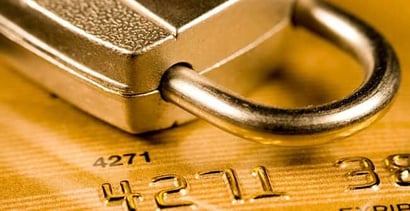

If your credit card account is shut down, it’s understandable if you’re frustrated and embarrassed.
However, it’s important to keep a clear head so you can address the problem as effectively as possible. There are a few things you can do to minimize the financial damage when a lender closes your credit card.
1. Figure out why your card was shut down.
Your very first move after your card is shut down should be to figure out why the credit card company made this decision. Call up the company’s customer service department and ask what happened.
If you’ve been missing payments, this could be the reason. Credit card companies also shut down accounts if they aren’t used often enough.
It’s also possible the credit card company made a mistake and might reopen your account once you point this out.
2. Don’t try to fight the decision.
When your card is shut down, it’s easy to lose your temper and start threatening to take legal action against the credit card company. This won’t be an effective move.
You are not guaranteed access to your credit cards. Issuers have the right to shut down your card at their discretion.
You can try asking them to reconsider, but if the company has already made up its mind, you’re better off moving on than trying to fight the decision.
“Losing an account is annoying,
but it isn’t the end of the world.”
It may be wise to contact a reputable credit repair company first before you contact difficult creditors.
3. Consider the impact on your credit score.
The way a closed credit card impacts your credit score depends on why the account was closed.
The issuer will note to the rating agencies why they made the decision to close your card. If your account was closed because of delinquent payments, this will hurt your score.
If your card was closed for another reason, like lack of activity, the closing itself shouldn’t impact your credit score. You’ll just have one fewer line of credit.
4. Calculate your new credit utilization rate.
Another way the closed credit card will affect your credit score is by changing your credit utilization rate. This is the ratio of what you owe on your credit cards versus your total credit limit.
When one of your accounts is shut down, your total credit limit will fall by the card’s limit. If you keep your balances low on your other cards, this won’t be a problem.
However, if you are carrying a balance on other cards, your credit utilization rate will go up, which is bad for your credit score.
In this case, you should try to pay down your other outstanding balances as quickly as possible to fix this problem.
Losing a credit card account is annoying, but it isn’t the end of the world. Follow this advice to address the issue today and try not to make the same mistakes. You don’t want run into this problem again.
Photo source: adaptive-intel.com.
Advertiser Disclosure
BadCredit.org is a free online resource that offers valuable content and comparison services to users. To keep this resource 100% free for users, we receive advertising compensation from the financial products listed on this page. Along with key review factors, this compensation may impact how and where products appear on the page (including, for example, the order in which they appear). BadCredit.org does not include listings for all financial products.
Our Editorial Review Policy
Our site is committed to publishing independent, accurate content guided by strict editorial guidelines. Before articles and reviews are published on our site, they undergo a thorough review process performed by a team of independent editors and subject-matter experts to ensure the content’s accuracy, timeliness, and impartiality. Our editorial team is separate and independent of our site’s advertisers, and the opinions they express on our site are their own. To read more about our team members and their editorial backgrounds, please visit our site’s About page.




